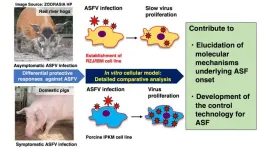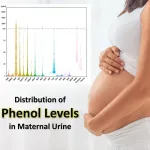(Press-News.org) TAMEST is pleased to announce Lyda Hill and Lyda Hill Philanthropies as the recipients of the Kay Bailey Hutchison Distinguished Service Award.
TAMEST is recognizing Lyda Hill and her team for empowering and enabling groundbreaking research in science and nature that profoundly impacts society. Lyda Hill, a successful businesswoman and world-renowned philanthropist, believes science can solve many of the world’s most challenging issues and has chosen to donate all of her estate to philanthropy and scientific research.
Aligned with this mission, Lyda Hill is committed to advancing science and public health research in Texas, as demonstrated through her philanthropic investments in the American Cancer Society’s HPV Cancer Free Texas campaign, MD Anderson Cancer Center, Meadows Mental Health Policy Institute, Texas Biomedical Research Institute, UT Southwestern Medical Center and many others. Lyda and Lyda Hill Philanthropies also proudly support scientific research and public health efforts outside of Texas. A recent notable example has been her support of Dr. David Baker’s protein design research at the University of Washington, which earned him the 2024 Nobel Prize for Chemistry.
"TAMEST is proud to present Lyda Hill and Lyda Hill Philanthropies with the Kay Bailey Hutchison Distinguished Service Award for their long-standing support of innovation and research in Texas," said TAMEST Board President Brendan Lee, M.D., Ph.D. (NAM), Baylor College of Medicine. "We share their conviction that 'Science is the Answer' to the great challenges and questions of our time, and Lyda Hill and her team are incredibly deserving recipients of this honor and recognition.”
In 2023, Lyda Hill and Lyda Hill Philanthropies launched a crucial new prize for scientific research in Texas, the Hill Prizes, and chose TAMEST to administer the prize program. The prizes recognize and advance top Texas innovators and researchers whose work could significantly impact science and society. The first year of the prizes saw $2.5 million in funding from Lyda Hill and Lyda Hill Philanthropies to propel high-risk, high-reward ideas that demonstrated very significant potential for real-world impact in five areas: Medicine, Engineering, Biological Sciences, Physical Sciences and Technology Innovation.
The success of the program’s first year led Lyda Hill to commit over $10 million in additional funding to continue the prize program for the next three years, including the addition of a new prize in the category of Public Health, resulting in six prizes per year of $500,000 each. In addition, Lyda Hill committed to fund at least $1 million in discretionary research funding to be allocated by Lyda Hill Philanthropies on an ad hoc basis to highly ranked applicants, thus far including investigators at Baylor College of Medicine, Southern Methodist University and UT Southwestern Medical Center.
“Lyda Hill and her team are building a robust base for science in Texas, and I applaud their creative approach to accelerating innovation," said Senator Kay Bailey Hutchison, TAMEST Honorary Chair, Former United States Senator, Former United States Ambassador to NATO. "The Hill Prizes are significant, and Lyda is taking huge steps to ensure deserving research is being funded in our state. Research is the seed that produces growth in the economy, so rewarding the best science in Texas keeps the creativity in Texas. I am so pleased to honor this critical and generous support of Lyda Hill and Lyda Hill Philanthropies.”
Lyda Hill and Lyda Hill Philanthropies have been supporters of Pegasus Park in Dallas, a 26-acre campus of life science labs, offices and development space that enables startups, nonprofits and academics to collaborate and thrive. Included in the campus are innovative departments of multiple North Texas higher education institutions and the first institutional-quality lab space in the region, which has helped strengthen North Texas’ role as a globally recognized center for life science innovation. In 2023, a consortium of Texas science, business and healthcare leaders came together to attract the new federal Advanced Research Projects Agency for Health (ARPA-H) to develop its Customer Experience Hub, one of three ARPA-H hubs in the nation, to Pegasus Park.
"We are honored to support the advancement of powerful, game-changing scientific ideas that will improve communities and lives," said Lyda Hill, Founder of Lyda Hill Philanthropies. "We are thrilled to accept the Kay Bailey Hutchison Distinguished Service Award from TAMEST and look forward to further collaborations."
TAMEST will officially present the award to Lyda Hill and Lyda Hill Philanthropies at the opening reception of the TAMEST 2025 Annual Conference: Transformational Breakthroughs in Irving, Texas, on the evening of Tuesday, February 4, 2025.
“Our team is honored to be recognized by TAMEST with the Kay Bailey Hutchison Distinguished Service Award,” said Nicole Small, CEO of Lyda Hill Philanthropies. “Working with TAMEST to create the Hill Prizes has allowed us to support critical research that will transform our society, and we look forward to the advancements made in healthcare.”
TAMEST established the Kay Bailey Hutchison Distinguished Service Award in 2013 to recognize individuals and organizations that have demonstrated outstanding leadership in furthering TAMEST's mission to bring together the state's brightest minds in medicine, engineering, science and technology to foster collaboration and to advance research, innovation and business in Texas.
The award is named after the TAMEST Honorary Chair, Senator Kay Bailey Hutchison. She received the inaugural award for her vision and commitment to advancing scientific research, technology innovation and educational achievement.
Lyda Hill and Lyda Hill Philanthropies are the ninth recipients of the award. Past recipients include The Cancer Prevention and Research Institute of Texas (2024); Dr. John L. Junkins and the Hagler Institute for Advanced Study, Texas A&M University (2022); The Office of the President, The University of Texas at Austin (2020); Exxon Mobil Corporation (2017); Larry Faulkner and Kenneth Jastrow (2016); Peter O’Donnell Jr. (2014); The Honorable Kay Bailey Hutchison (2013).
About Lyda Hill Philanthropies:
Lyda Hill Philanthropies encompasses the charitable giving for founder Lyda Hill and includes her foundation and personal philanthropy. Her organization is committed to funding transformational advances in science and nature, empowering nonprofit organizations and improving the Texas and Colorado communities. Because Miss Hill has a fervent belief that "science is the answer" to many of life's most challenging issues, she has chosen to donate the entirety of her estate to philanthropy and scientific research. For more details, visit lydahillphilanthropies.org.
About TAMEST:
TAMEST (Texas Academy of Medicine, Engineering, Science and Technology) was co-founded in 2004 by the Honorable Kay Bailey Hutchison and Nobel Laureates Michael S. Brown, M.D., and Richard E. Smalley, Ph.D. With more than 345 members, 8 Nobel Laureates and 23 member institutions, TAMEST is composed of Texas-based members of the three National Academies (National Academy of Medicine, National Academy of Engineering and National Academy of Sciences) and other honorific organizations. We bring together the state’s brightest minds in medicine, engineering, science and technology to foster collaboration, and to advance research, innovation and business in Texas.
TAMEST’s unique interdisciplinary model has become an effective recruitment tool for top research and development centers across Texas. Since our founding, more than 300 TAMEST members have been inducted into the National Academies or recruited to Texas.
END
TAMEST recognizes Lyda Hill and Lyda Hill Philanthropies with Kay Bailey Hutchison Distinguished Service Award
2024-11-19
ELSE PRESS RELEASES FROM THIS DATE:
Establishment of an immortalized red river hog blood-derived macrophage cell line
2024-11-19
Red river hogs (RRHs) (Potamochoerus porcus), a wild species of Suidae living in Africa, have grabbed much attention as an animal that harbors African swine fever virus (ASFV) as natural hosts. When ASFV infects domestic pigs and wild boars, it proliferates within macrophages, a type of immune cells, and infected pigs rapidly die suffering from symptoms such as fever and hemorrhage. On the other hand, ASFV infection in RRHs is asymptomatic and does not cause death, suggesting that RRH macrophages may have a protective mechanism against ASFV infection.
In vitro cell cultures of porcine macrophages are generally ...
Neural networks: You might not need to buy every ticket to win the lottery
2024-11-19
The more lottery tickets you buy, the higher your chances of winning, but spending more than you win is obviously not a wise strategy. Something similar happens in AI powered by deep learning: we know that the larger a neural network is (i.e., the more parameters it has), the better it can learn the task we set for it. However, the strategy of making it infinitely large during training is not only impossible but also extremely inefficient. Scientists have tried to imitate the way biological brains learn, which is highly resource-efficient, by providing machines with a gradual training process that starts with ...
Healthy New Town: Revitalizing neighborhoods in the wake of aging populations
2024-11-19
Planned suburban residential neighborhoods in metropolitan areas known as new towns were initially developed in England. The new town movement spread from Europe to East Asia, such as to Japan, South Korea, Hong Kong, and Singapore. In Japan alone, 2,903 New Towns were built, but many experienced rapid population decline and aging in the 40 years after their development. Therefore, they changed into old new towns and had to transform their facilities.
Dr. Haruka Kato, a junior associate professor at Osaka Metropolitan ...
High exposure to everyday chemicals linked to asthma risk in children
2024-11-19
A new study from researchers at Kumamoto University sheds light on a potential link between exposure to certain everyday chemicals during pregnancy and the development of asthma in children. The study analyzed data from over 3,500 mother-child pairs as part of the Japan Environment and Children’s Study (JECS), a large-scale nationwide research project.
Key Findings:
High levels of butylparaben, a chemical commonly used in personal care products like lotions and shampoos, during early pregnancy were associated with a 1.54-fold increase in the odds of asthma development in children ...
How can brands address growing consumer scepticism?
2024-11-19
Transparency and effective communication are critical for brands to gain and keep consumer trust according to new research.
The University of Adelaide’s Dr Kate Sansome, from the Adelaide Business School has led a study which suggests that consumers want brands to be transparent about topics that impact them.
“As sociopolitical issues become topical in the news and social media, brands are expected to be transparent about them; for example, as consumers face cost-of-living pressures, they will expect brands to be transparent about this issue,” says Dr Sansome, who conducted the study with the Professor Jodie Conduit and Dr ...
New paradigm of quantum information technology revealed through light-matter interaction!
2024-11-19
□ A research team led by Professor Jaedong Lee from the Department of Chemical Physics of DGIST (President Kunwoo Lee) has introduced a novel quantum state and a pioneering mechanism for extracting and controlling quantum information using exciton and Floquet states.
□ Collaborating with Professor Noejung Park from UNIST’s Department of Physics (President Chongrae Park), the team has, for the first time, demonstrated the formation and synthesis process of exciton and Floquet states, which arise from light-matter interactions in two-dimensional semiconductors. This study captures quantum information in real-time as it unfolds through entanglement, offering ...
MSU researchers find trees acclimate to changing temperatures
2024-11-19
Images
Climate change is a persistent and growing challenge to plant life on our planet. Changes to the environment that plants are unaccustomed to affect how they grow, putting much at risk. Increasingly, plant scientists are trying to determine how these environmental changes will impact plant life and whether plants will be able to acclimate to a new status quo.
Researchers from the Walker lab at the Michigan State University-U.S. Department of Energy Plant Research Laboratory, or PRL, are looking at how paper birch trees adapt to changing environments based on how they manage a vital plant process called photorespiration.
“If ...
World's first visual grading system developed to combat microplastic fashion pollution
2024-11-19
Over 14 million tonnes of microplastics are estimated to be lying on the ocean floor with the fashion industry among the worst pollutants.
But a new project led by textile experts at Heriot-Watt University in the Scottish Borders, is aiming to make fashion labels and consumers alike, more environmentally aware when manufacturing and buying new clothes.
For four years, a small team headed by Dr Lisa Macintyre, associate professor of textiles at the University’s School of Textiles and Design in the Galashiels campus, has overseen painstaking ...
Teenage truancy rates rise in English-speaking countries
2024-11-19
Working paper | Quantitative data analysis | People
Truancy rates have risen faster in developed English-speaking countries since the Covid-19 pandemic than in non-English-speaking countries, according to a new working paper by UCL researchers.
Teenage girls are also increasingly more likely to skip school than boys across Anglophone countries.
In 2022, 26% of all Year 11 pupils in England reported playing truant at least once in the last fortnight. This represented an increase from 2012 and 2018, the previous data capture points, when the figure was at 18% each time.
In the same year (2022), 29% of Year 11 girls in England reported skipping school in the past ...
Cholesterol is not the only lipid involved in trans fat-driven cardiovascular disease
2024-11-18
LA JOLLA (November 14, 2024)—Excess cholesterol is known to form artery-clogging plaques that can lead to stroke, arterial disease, heart attack, and more, making it the focus of many heart health campaigns. Fortunately, this attention to cholesterol has prompted the development of cholesterol-lowering drugs called statins and lifestyle interventions like dietary and exercise regimens. But what if there’s more to the picture than just cholesterol?
New research from Salk Institute scientists describes how another class of lipids, called sphingolipids, contributes to arterial plaques and atherosclerotic cardiovascular disease ...






